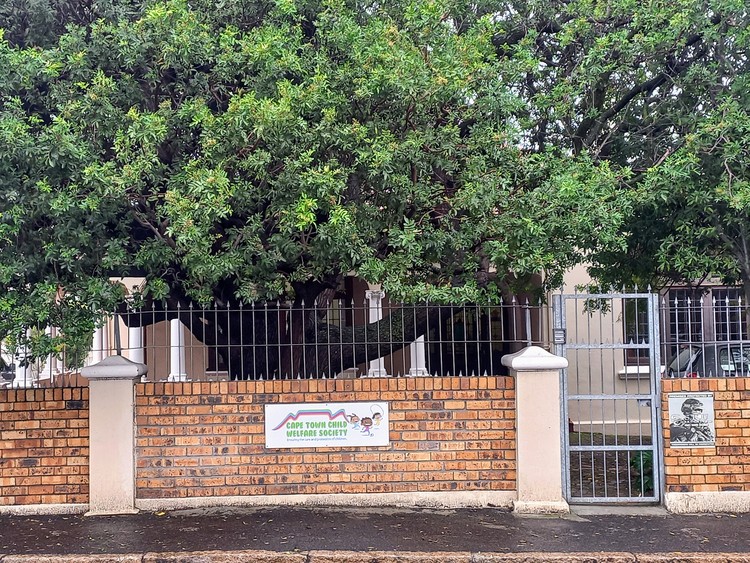Child protection services raise alarm on funding shortfalls
Funding for child protection programmes in the Western Cape has not kept pace with inflation
The Child Welfare Society has taken over Badisa’s office in Wynberg since the organisation was forced to close down three offices due to funding constraints. Photo: Marecia Damons
- Organisations offering child protection services in the Western Cape say they are struggling to cope because of inadequate funding from the provincial government.
- Several have had to cut salaries and other spending and even close offices.
- The provincial Department of Social Development says funding challenges are the result of a declining economy and the Covid pandemic, among other things.
As the country marks Child Protection Week, organisations offering child protection services in the Western Cape say they are having to cut back and even close down offices in the face of declining government funding.
In a statement this week, organisations in the Western Cape Child Protection Alliance said that the lack of adequate funding and subsidies from the state would perpetuate the cycle of violence, undermine community safety, and thwart their strategies to catch up after the Covid pandemic. According to the Alliance, which represents 13 organisations, for the last five years subsidies for child protection services in the Western Cape have remained at the same level. “Because of rising costs and inflation, this means a cut in real terms of between 20 to 25%,” they said.
Monique Mortlock-Malgas, spokesperson for Department of Social Development (DSD) MEC Sharna Fernandez, told GroundUp that Child Protection programmes receive R200-million in funding, compared to R164-million five years ago.
Asked why funding has not kept pace with inflation over the last five years, Mortlock-Malgas said: “The impact of a declining economy, the impact of above-inflation public sector wage increases nationally, and the shifting of funding toward disaster relief efforts in the wake of the pandemic, has meant that the department has not been able to increase.”
Georeen van Rensburg, provincial director at Child Welfare South Africa, says the organisation can no longer offer competitive salaries to social workers.
“A social worker will start working with a child who has experienced trauma, then they get another job and just leave.” This, Van Rensburg says, causes communities to lose trust in social workers, particularly in rural communities.
Child Welfare uses about 25% of the subsidy it gets from the department for administration expenses like transport and accommodation, says van Rensburg. As funding dwindles, Child Welfare has had to make substantial cuts like limiting the trips social workers make to more distant areas.
Ronel van Zyl, director of social services programmes at Badisa, says the organisation has been forced to close three offices in the last three years. Several centres which offered specific services to elderly people have also closed down.
Van Zyl says they lost donors and have been struggling to recover financially since the pandemic outbreak. Badisa provides a range of services to children, the elderly and disabled persons, as well as substance abuse recovery programmes in the Western Cape, Northern Cape and Eastern Cape. “Whilst we have a very good working relationship with DSD, the sector is at breaking point. We need a sustainable funding model.”
Marguerite Holtzhausen, director at The Trauma Centre in Cape Town, says they currently only have two social auxiliary workers, compared to six in 2021. “Due to the low increase in subsidies, we have a very high turnover. Since 2020 our two social work posts have been filled by six different people.”
The organisation provides psycho-social services to children, primarily on the Cape Flats.
Holtzhausen says that they have not had to cut back on services yet, but the organisation is struggling to pay overheads and “the whole funding sector is very competitive. Finding alternative funding to keep the organisation out of debt is difficult”.
Nicolette van der Walt, National Manager of Child Protection at ACVV, says they have not been able to increase staff salaries for the last five years.
Van Der Walt says the subsidy for a social worker in an NGO, at about R16,500 a month, is “half of what a social worker in government is earning”.
“Our social auxiliary workers earn about R7,000 a month. How are people supposed to live? If the government at least gives us an inflation-based increase, then we can also increase our staff salaries,” she says.
Mortlock-Malgas said the department acknowledged the difficulties facing the child protection organisations. “As government we cannot support this crucial sector alone, due to limited resources.”
She said the department would host discussions with this sector in June to find sustainable solutions. The discussions would be facilitated by the Children’s Commissioner and attended by the provincial treasury.
Support independent journalism
Donate using Payfast

Don't miss out on the latest news
We respect your privacy, and promise we won't spam you.
Next: R15-million Lehae taxi rank destroyed by vandals
Previous: ANC supporters defend councillor against angry job seekers in Mdantsane
© 2023 GroundUp. This article is licensed under a Creative Commons Attribution-NoDerivatives 4.0 International License.
You may republish this article, so long as you credit the authors and GroundUp, and do not change the text. Please include a link back to the original article.
We put an invisible pixel in the article so that we can count traffic to republishers. All analytics tools are solely on our servers. We do not give our logs to any third party. Logs are deleted after two weeks. We do not use any IP address identifying information except to count regional traffic. We are solely interested in counting hits, not tracking users. If you republish, please do not delete the invisible pixel.

